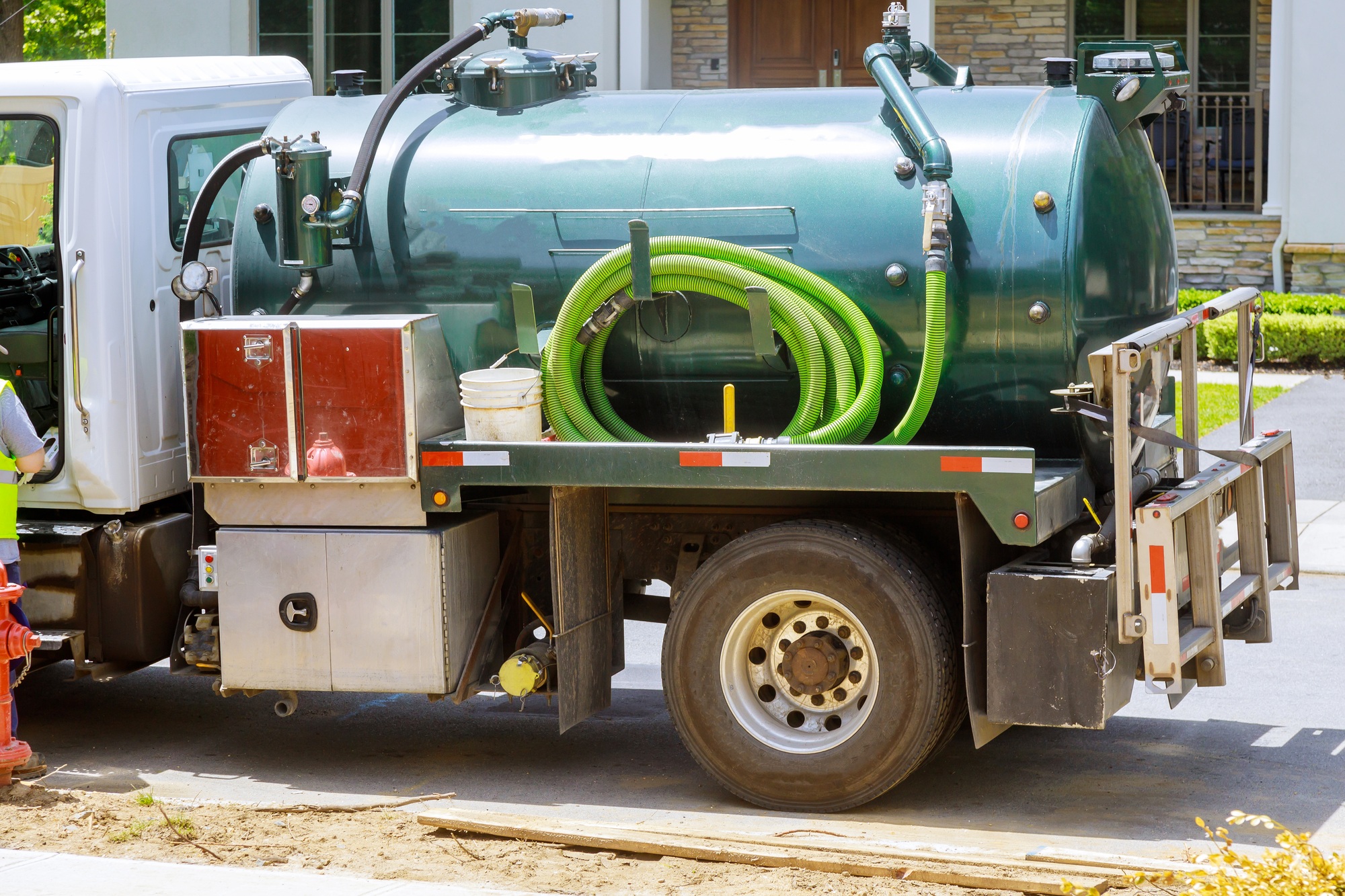Key Takeaways

- Growing Market: Demand for septic pumping services is increasing due to rising reliance on septic systems, especially in rural and suburban areas.
- Essential Services: Key services include septic tank pumping, inspection, maintenance plans, and emergency services, all crucial for customer retention and revenue generation.
- Business Planning: A solid business plan is vital; understanding your target audience and crafting a sustainable business model will set the foundation for success.
- Legal Compliance: Ensure compliance with local regulations and acquire necessary licenses and insurance to build trust and protect your business.
- Investment in Equipment: Invest in appropriate septic pumping trucks and essential tools to operate efficiently and meet industry standards.
- Effective Marketing: Build a strong online presence and network within local communities to enhance visibility, credibility, and customer engagement for your business.
Starting a septic pumping business can be a lucrative venture in today’s world where proper waste management is crucial. With more homeowners and businesses relying on septic systems, the demand for reliable pumping services is on the rise. If you’re looking for a way to tap into this essential industry, you’re in the right place.
In this article, you’ll discover the key steps to launching your own septic pumping business. From understanding the necessary permits and equipment to marketing your services effectively, you’ll gain insights that can set you on the path to success. Whether you’re a seasoned entrepreneur or new to the business world, this guide will help you navigate the ins and outs of this rewarding field.
Understanding the Septic Pumping Business

The septic pumping business presents a viable opportunity for small business owners. With increasing reliance on septic systems, you can tap into a growing market that requires essential waste management services.
Market Demand and Opportunities
Market demand for septic pumping services continues to rise as more homeowners and businesses adopt septic systems. According to the Environmental Protection Agency (EPA), approximately 20% of U.S. households rely on septic systems. As these systems require regular maintenance and pumping, the opportunity for startups in this sector is substantial. Rural and suburban areas, in particular, often lack comprehensive waste management options, making your services necessary.
Key Services Offered
Key services in the septic pumping business include:
- Septic Tank Pumping: Regular pumping ensures systems function properly and prevents costly backups.
- Inspection Services: Inspecting tanks helps identify problems early, allowing customers to avoid expensive repairs.
- Maintenance Plans: Offering maintenance contracts provides consistent services, securing customer loyalty and steady income.
- Emergency Services: Providing around-the-clock assistance for urgent situations enhances your reputation and reliability.
By understanding market demand and offering essential services, you prepare your small business for success in the septic pumping industry.
Getting Started with Your Business Plan

Starting a business in septic pumping requires a solid plan. Focus on understanding your market and crafting a sustainable business model.
Identifying Your Target Audience
Identify your target audience to tailor your services effectively. Consider homeowners and businesses that utilize septic systems, particularly in rural and suburban areas. Research demographic data to pinpoint potential clients. Look for areas with high septic system usage, as approximately 20% of U.S. households rely on these systems. This targeted approach helps you refine marketing strategies and service offerings.
Crafting a Business Model
Craft a business model that outlines how you’ll operate and generate revenue. Include service types such as septic tank pumping, inspection, and emergency assistance. Determine pricing strategies based on local competition and industry standards. Factor in initial and ongoing costs, such as equipment maintenance and staff salaries. Develop a financial projection to assess profitability and sustainability, ensuring you stay on track as you grow your small business in the septic pumping industry.
Legal Considerations for Your Septic Pumping Business
Starting a septic pumping business involves navigating various legal considerations. Ensuring compliance with state and local regulations protects your startup and builds trust with your customers.
Licensing and Permits
Obtaining the necessary licenses and permits varies by location. Most states require specific licenses for operating a septic tank pumping business, which may include activities like septic tank repair and wastewater disposal. You must confirm the particular legal requirements with your local government to avoid penalties. Some jurisdictions mandate that septic systems be serviced by qualified professionals who hold the proper licenses and insurance.
Insurance Requirements
Insurance plays a crucial role in protecting your small business. Liability insurance safeguards you against claims related to property damage or injury during service operations. It’s important to research local insurance regulations to ensure coverage meets the necessary standards. Many states also require business owners to hold workman’s compensation insurance for employees, further mitigating risks associated with your septic pumping operations.
Essential Equipment and Tools
To successfully start a septic pumping business, obtaining the right equipment and tools is crucial. Proper equipment ensures efficient operations and compliance with industry standards.
Types of Septic Pumping Trucks
- Septic Pumping Trucks: These all-in-one vehicles feature large tanks and pumping mechanisms designed for emptying septic tanks. Prices for these trucks range from $100,000 to $160,000, making them a significant investment for your startup. Ensure the truck meets local regulations and your business needs.
- Slide-In Units: If you already own a pickup truck, consider slide-in units. These vacuum tanks fit into truck beds and are more economical. They provide flexibility for your small business as you grow and expand services.
Necessary Tools and Safety Gear
- Septic Locator Tools: Equip yourself with metal detectors, soil probe rods, or ground probe rods to locate buried septic tanks. Electronic probes enhance accuracy and efficiency, crucial for your operational success.
- Pumping Equipment: Acquire hoses, fittings, and vacuum pumps for efficient septic tank emptying. Quality tools not only streamline processes but also contribute to customer satisfaction.
- Safety Gear: Protect yourself and your team with gloves, goggles, and protective clothing. Proper safety gear minimizes risk during operations and demonstrates professionalism to clients.
These essential tools and equipment facilitate the efficient functioning of your septic pumping business, ensuring you deliver high-quality service while adhering to safety regulations.
Marketing Your Septic Pumping Business
Effective marketing is essential for your septic pumping business, helping you reach potential customers and build a lasting reputation in your community. Focus on two key areas: building an online presence and networking with local communities.
Building an Online Presence
Building an online presence allows you to showcase your services and attract clients.
- Create a Professional Website: Ensure your website includes your business’s services, contact information, pricing, and customer testimonials. A user-friendly design promotes better engagement.
- Utilize SEO Strategies: Optimize your website with relevant keywords such as “septic pumping services” and “how to start a small business in waste management.” This increases visibility on search engines, attracting more traffic.
- Leverage Social Media: Use platforms like Facebook, Instagram, and LinkedIn to connect with your audience. Share tips on septic system maintenance, special offers, and customer stories to engage your followers.
- Engage with Online Reviews: Encourage satisfied customers to leave positive reviews on platforms like Google and Yelp. Respond to all feedback professionally to demonstrate commitment to customer service.
Networking with Local Communities
Networking with local communities builds trust and promotes your brand.
- Join Local Business Groups: Participate in chambers of commerce or local business associations. This expands your professional connections and allows you to share information about your services.
- Attend Community Events: Participate in local events, fairs, or expos. This helps raise awareness of your septic pumping services and fosters personal relationships with potential clients.
- Partner with Local Contractors: Collaborate with plumbers, real estate agents, and property managers. These partnerships can generate referrals, helping you gain new customers and establish credibility.
- Offer Workshops and Free Inspections: Host educational workshops on septic maintenance or provide free inspections for potential clients. This demonstrates your expertise and attracts new business.
By focusing on these marketing strategies, you can effectively promote your septic pumping business.
Conclusion
Starting a septic pumping business offers a promising opportunity in a growing market. By understanding the unique needs of your target audience and providing essential services, you can carve out a niche in this vital industry.
Focus on compliance with local regulations and invest in the right equipment to ensure efficient operations.
Effective marketing will help you connect with potential clients and build a strong reputation in your community. With careful planning and dedication, your septic pumping business can thrive and contribute to effective waste management solutions. Embrace the journey and watch your business flourish.
Frequently Asked Questions
What is a septic pumping business?
A septic pumping business provides waste management services for homes and businesses that rely on septic systems. It involves pumping out waste from septic tanks, inspecting systems, and offering maintenance plans. The increasing reliance on septic systems presents a growing market opportunity for entrepreneurs.
Why start a septic pumping business?
Starting a septic pumping business is viable due to rising demand for waste management services, especially in rural and suburban areas. With approximately 20% of U.S. households using septic systems, there is a continuous need for pumping, inspection, and maintenance services.
What equipment do I need to start?
Essential equipment includes septic pumping trucks, tanks, septic locator tools, and safety gear. Having the right tools ensures efficient operations while adhering to safety regulations, making it easier to provide quality service to customers.
How do I market my septic pumping business?
Effective marketing strategies include creating a professional website, utilizing SEO techniques, engaging on social media, and collecting online reviews. Networking within local business communities and offering workshops can also help build trust and promote your services.
What legal requirements are involved?
Starting a septic pumping business requires obtaining necessary licenses and permits, which vary by location. Compliance with state and local regulations is essential to protect your startup and build customer confidence. Liability insurance and workman’s compensation insurance for employees are also crucial.
What should be included in my business plan?
Your business plan should outline market research, target audience identification, service offerings, pricing strategies, and financial projections. This structured approach will help ensure profitability and sustainability while guiding your operations as your business grows.
Who are the target customers for septic pumping services?
The primary target customers are homeowners and businesses that use septic systems, particularly in areas where comprehensive waste management options are limited. Understanding demographic data can help refine marketing strategies and cater to specific needs.
How can I ensure compliance with regulations?
To ensure compliance, familiarize yourself with local and state regulations governing septic services. Obtain the necessary licenses and permits, and hire qualified professionals for operations. Regularly reviewing regulations can help maintain compliance and safeguard your business.
Image Via Envato



